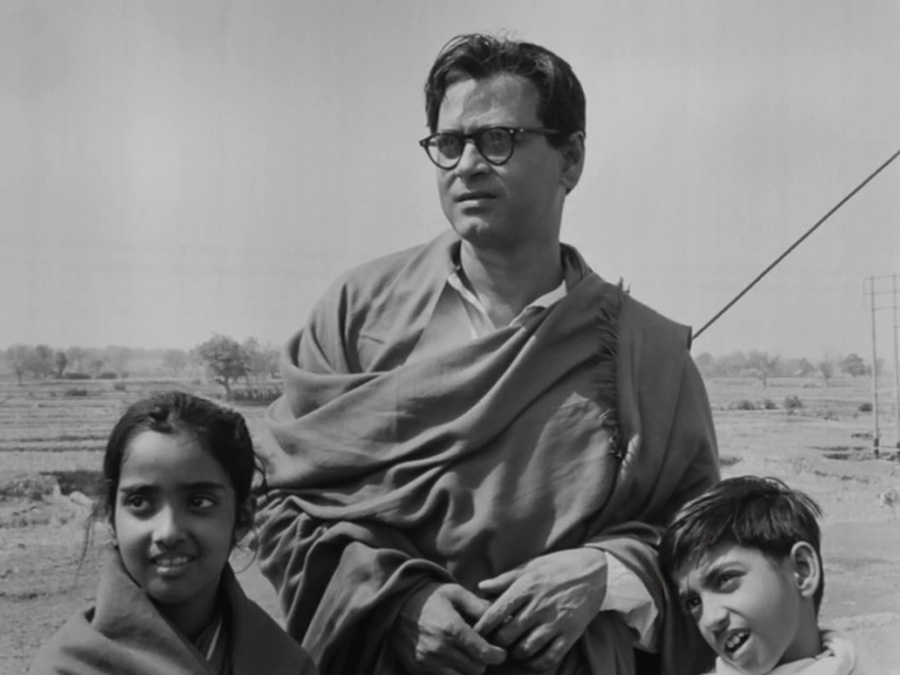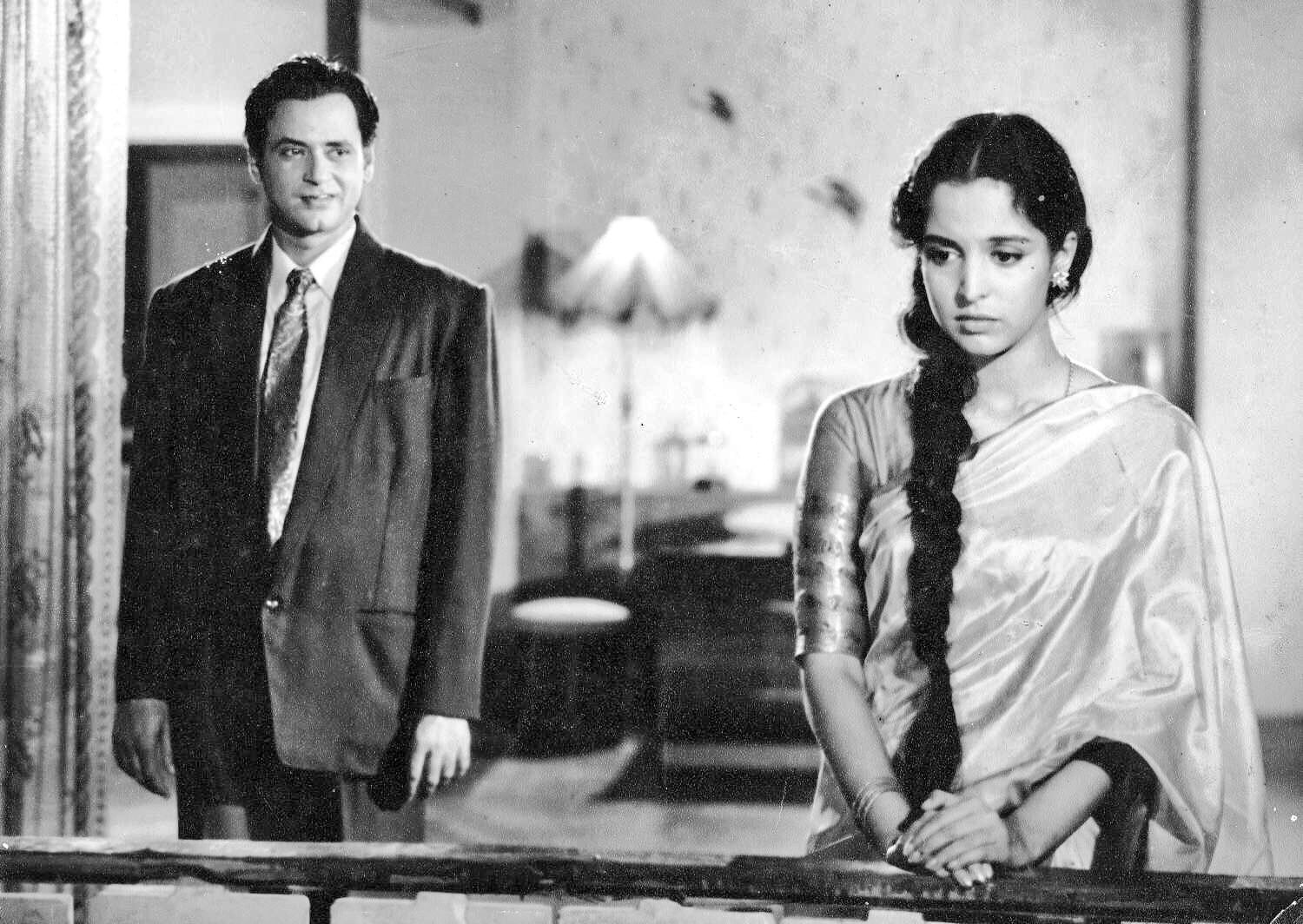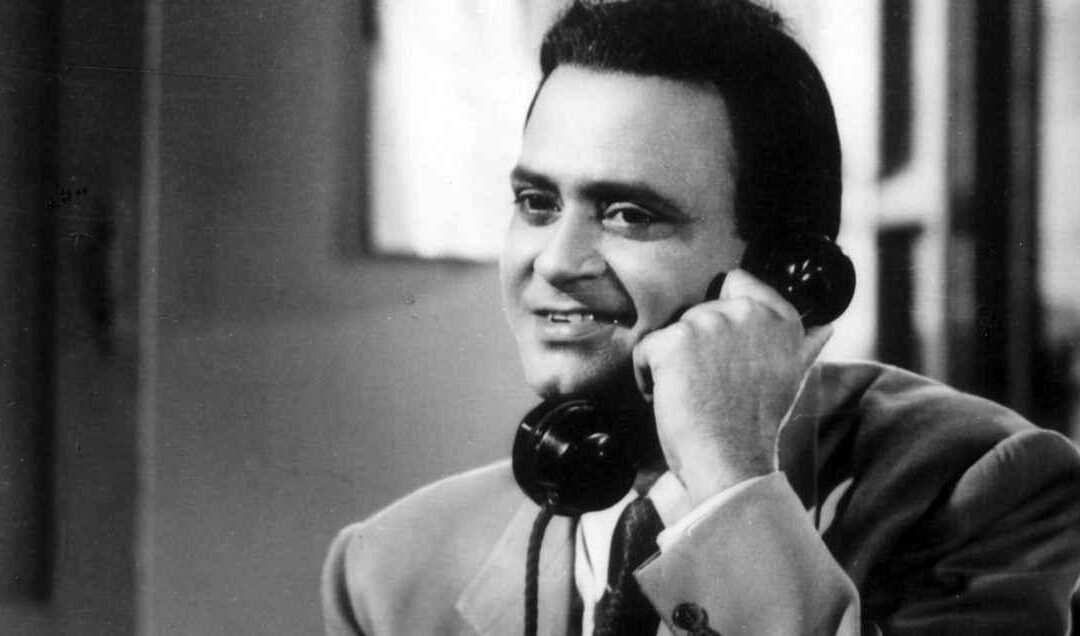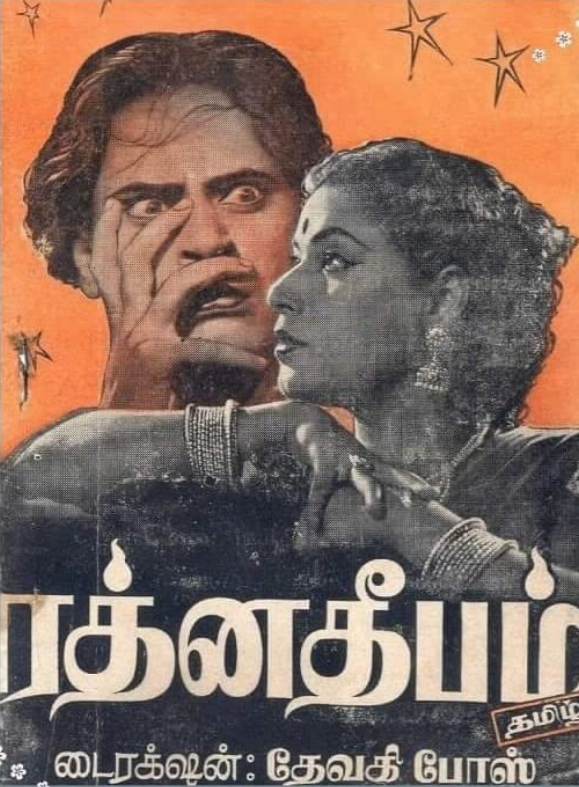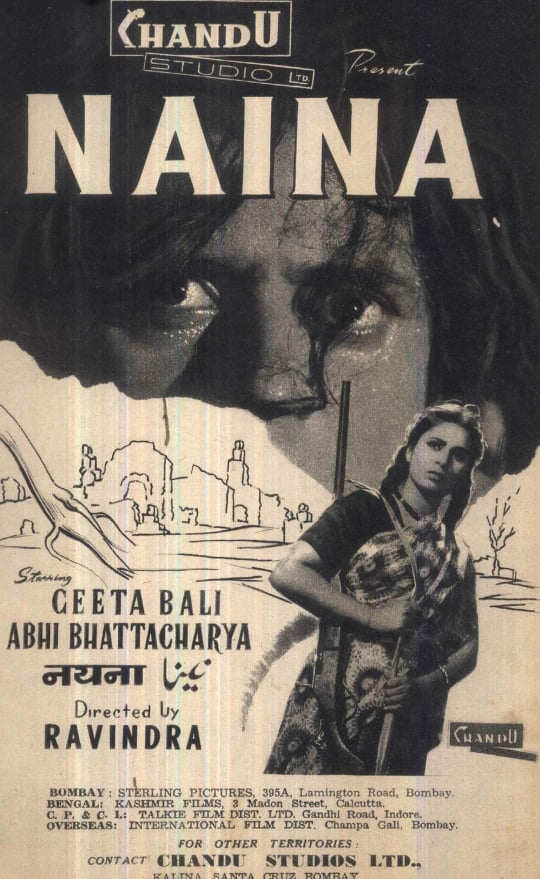“Do you have any other names?” enquired the filmmaker.
“Actually my late mother used to call me by another name, Abhimanyu.” Prompt came the reply.
“A-B-H-I-M-A-N-Y-U. That’s better. We’ll shorten it a bit.”
And that is how Krishna Gobinda Bhattacharya, known popularly to the Indian cinema fans as Abhi Bhattacharya, got his onscreen name. In an illustrious career spanning a little over four decades, he has performed in both mainstream and off beat films, and has worked with noted directors like Bimal Roy, Debaki Bose, Nitin Bose, Ritwik Ghatak, Satyen Bose, Hrishikesh Mukherjee, K. Asif, Shakti Samanta, Sohrab Modi, and so on.
Born on 20 th November, 1921(1920, according to some sources), in Enayetpur, Rajshahi in a zamindar family, Abhi completed most of his schooling from his maternal home in Gaya, after losing his mother at a young age. It was in this holy, little city of Bihar where the acting bug bit him for the first time. Apart from watching a lot of New Theatres classics, he also actively participated in amateur theatre during this time.
Despite staunch opposition from his father, Abhi started knocking the doors of various Bengali film studios from his late teens, but to no avail. Failing to break into the film world, he tried his luck in a number of jobs during this time, like with the Tata Iron and Steel Company, a brick factory in Dhanbad and so on, but none could give him the satisfaction of mind which the entertainment world could.
A chance meeting with noted impresario Haren Ghosh saw him touring foreign cities like Tehran, Baghdad, Karachi, etc as the manager of a ballet troupe. It was after his return from this very trip that he travelled to Bombay and contacted Hiten Chowdhury (a famous name in the Bombay film world and non-film circles outside India), who was related to Abhi through his maternal aunt. Hiten, who was working back then as a production controller in the iconic Bombay Talkies, not only managed to get Abhi a job at the same studio, but also gave him shelter in his house. After working for some time as a production manager, Abhi finally got his big break, that too as a leading man, in the Bengali version of ‘Naukadubi(1947)’, which was produced by Hiten Chowdhury under the banner of Bombay Talkies. Based on an eponymous novel by Rabindranath Tagore, the Hindi version of the film ‘Milan’ had Dilip Kumar essaying the lead role. Satyajit Ray (who had not joined the film industry back then) had written a draft script of the film, in order to get it checked by Nitin Bose, who was related to him. Abhi was introduced to the Hindi audiences through Debaki Bose’s trilingual Ratnadeep(1951) and Kartik Chattopadhyay’s bilingual ‘Yatrik(1952)’.
The fifties saw him getting paired opposite some of the most popular actresses of that time. Some of his noted films from this decade include ‘Rami Dhoban(1953)’ and ‘Biraj Bahu(1954)’ opposite Kamini Kaushal, ‘Naata(1955)’ opposite Madhubala, ‘Naina(1953)’ and ‘Sailab(1956)’ opposite Geeta Bali, ‘Chhote Babu(1957)’ opposite Nimmi, ‘Apradhi Kaun?(1957)’ opposite Mala Sinha, Teesri Gali (1958) opposite Shyama, etc. His performance as the hostel superintendent Sekhar in Satyen Bose’s ‘Jagriti(1954)’ fetched him the prestigious Filmfare Award for Best Supporting Actor. The fifties proved to be an eventful decade of his life as it also saw him getting married to his frequent co-star Pronati Ghosh in 1957 followed by his shifting to the Carter Road residence in Bandra area of Bombay the following year.
While the sixties saw him slowly shift towards more and more supporting roles in Bollywood, this decade also witnessed him turn up as the protagonist Ishwar Chakraborty in Ritwik Ghatak’s all time classic ‘Subarnarekha(1965)’. Widely hailed as one of the finest films to have come out of the Indian subcontinent, it fetched him critical acclaim.
In the early seventies, he turned to spirituality, through his association with Amiya Roy Chowdhury, also known as Dadaji. While he maintained his ties with the film world, Abhi became Dadaji’s devoted companion for close to two decades, even travelling with him on annual tours throughout the world. He decided to write about his experiences with Dadaji, in a book titled ‘Destiny with Dadaji’. Unfortunately, Abhi Bhattacharya passed away on September 11, 1993, before it could be published in hardcover.
Abhi essayed a wide range of characters throughout his acting career. From being a villain in films like ‘Mahal (1970)’, ‘Memsaab(1971), ‘Aakhri Badla/ Swarna Trisha(1989)’ to playing mythological roles in ‘Tulsi Vivah(1971)’, ‘Hari Darshan(1972)’, ‘Harishchandra Shaibya(1985)’, he brought to the screen great versatility in roles, while comfortably straddling two languages. And though his skills as an actor were there for all to see when heplayed negative or grey characters, the roles in which he looked his convincing best were those of a quintessential gentleman, whom you can trust and confide your deepest secrets in. Who can forget Mr. Saxena from ‘Aradhana(1969)’ who keeps his promise by bringing up his adopted son as an airforce pilot in order to fulfil the boy’s dead biological father’s last wish? Could anyone fail to be charmed by the benevolent Catholic Priest Father Francis of ‘Dost(1974)’ lip-syncing to Kishore Kumar’s ‘Gadi Bula Rahi Hain’? Abhi Bhattacharya undertook many journeys in life; none as memorable as the ones he took into our hearts.
